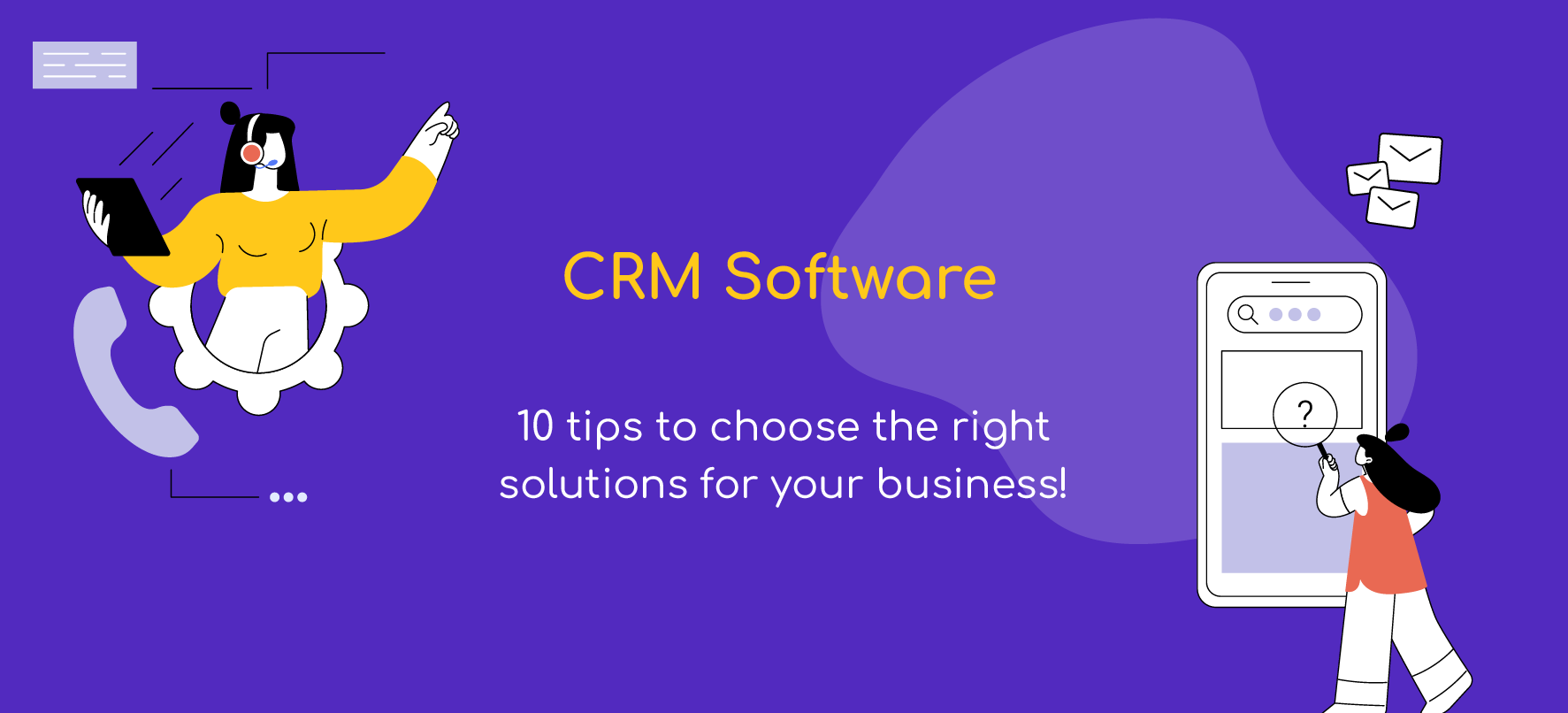Selecting the right CRM software can considerably impact your business's growth. In the modern fast-paced and competitive environment, nurturing strong connections with customers is crucial for sustainability. A well-chosen CRM system not just optimizes your customer interactions as well boosts productivity, enhances data management, and eventually drives sales.
With a multitude of options to choose from, discovering the most suitable CRM software designed to your specific needs can be overwhelming. This guide will guide you through the essential factors to consider, helping you make an educated decision that aligns with your business goals. Whether you are a modest startup or an long-standing enterprise, understanding the nuances of CRM solutions will allow you to choose a tool that confirms your vision for accomplishment.
Understanding Customer Relationship Management Software
Customer Relationship Management (CRM) software represents a tool created to enable businesses manage their relationships with current and potential customers. It enables companies to optimize processes, strengthen customer relationships, and eventually boost sales. CRM systems support the collection, management, and analysis of customer data, allowing businesses to gain understanding into customer behavior, preferences, and requirements.
At its essence, CRM software improves communication and cooperation between workgroups by offering a centralized database. This guarantees that customer data is quickly available to all authorized personnel, breaking down silos and fostering better teamwork. By utilizing this data, organizations can tailor their advertising campaigns, improve customer service, and create tailored experiences that cultivate loyalty.
Determining the best Customer Relationship Management solution involves comprehending the specific needs of your business and how the software can meet those requirements. Essential considerations are scalability, ease of use, integration options, and the scope of features available. By analyzing Dynamic Digital Solutions , businesses can choose a Customer Relationship Management software that aligns with their operational goals and enhances long-term growth.
Key Features to Take into Account
When choosing a CRM platform, one of the most important features to consider is user-friendliness. A user-friendly interface can considerably affect how quickly your team acclimates to the new system. If the software is complex or messy, it may lead to inefficiency. Tools with intuitive navigation and clear instructions reduce the time needed to learn, allowing your team to focus on building relationships with clients rather than dealing with technical issues.
Another key feature is the automated functions of the CRM software. Automation can make more efficient repetitive tasks such as data entry, follow-up emails, and lead tracking. By automating repetitive processes, your team can dedicate time to core activities that drive sales and enhance client satisfaction. Look for solutions that include tailored workflows to address your business's specific needs, ensuring optimal efficiency.
Compatibility with other tools is also crucial when selecting CRM software. Your business likely utilizes various tools for advertising, interaction, and task management. A CRM that easily integrates with these current applications can create a seamless flow of information and reduce the likelihood of data fragmentation. Ensure that the software you review includes strong integration options, which will enhance collaboration across teams and provide a cohesive approach to customer relationship management.

Assessing Customer Relationship Management Solutions
As you evaluating Customer Relationship Management solutions choices, it is essential to begin by defining the requirements of your enterprise. Dedicate time to evaluate the features that your teams need, such as tracking customer communications, forecasting sales, performance analytics, and integration with existing tools. An accurate overview of your aims can help you filter the selections that correspond to your needs, streamlining the evaluation process.
Then, reflect on user experience and interfaces of each CRM solution. A simple interface can significantly impact the adoption rate as well as daily interactions. Take time to explore demonstrations and/or test versions to evaluate how easy it feels for your team. Additionally, request feedback from possible users in your organization to ascertain that the CRM will meet their needs and enhances their workflow.
Finally, review the assistance and features provided by the vendor. Trustworthy customer service is essential for troubleshooting as you seek further assistance. Research the availability of training materials, guides, as well as community forums. These resources will ensure a smooth implementation and continued success as your company expands and adapts to new challenges.
